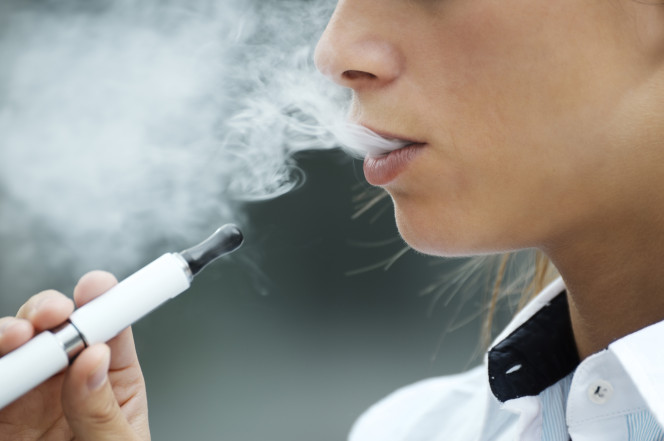The biggest loser of the City Council’s crackdown on e-cigarettes this week? New Yorkers’ health.
On Aug. 9, the council voted to slash the number of vape shops allowed to operate and to ban new stores from opening. It’ll be devastating to small-business owners seeking to compete legally with big tobacco.
Worse, by drastically ratcheting down the number of vape shops in the city, smokers will have fewer places to buy their favored alternative to cigarettes. Sure, they could still buy online, but they’d be missing out on individualized guidance on which products will give them the best chance at quitting.
Vape-shop owners are typically former smokers who saved their own lives by ignoring the advice of nanny-staters and quit smoking aided by e-cigarettes. They’ve become entrepreneurs whose businesses succeed when smokers quit. Now, both are more likely to fail.
It’s hard enough to even begin to make the effort to quit smoking. We know how addictive cigarettes are. But smokers considering e-cigarettes are being discouraged in the face of misinformation coming from once-trusted groups like the American Heart Association and American Lung Association. Both groups actively supported the vape-shop ban.
Big Pharma, which funds such groups, is concerned that the pesky vape shops are rendering their largely ineffective FDA-approved anti-smoking products obsolete.
The council just doesn’t get it. Vape-shop staffers, with their real-world success stories and product knowledge, have the potential to be highly effective, especially for entrenched smokers who were unsuccessful with other methods.
What’s more, unlike floundering taxpayer-funded health counselors, already forbidden from giving smokers factual information about e-cigarettes, vape-shop employees don’t cost taxpayers a penny. (Unless we consider the lost tax-revenue from cigarette sales.)
Yet instead of welcoming vape shops, the city wants to shut them down.
Uncle Sam, thankfully, is moving in the other direction, finally. Obama-era regulations would have banned almost every e-cigarette that’s ever been used to quit smoking. But as FDA Commissioner Scott Gottlieb stated when unveiling a new federal approach, “The overwhelming amount of death and disease attributable to tobacco is caused by addiction to cigarettes — the only legal consumer product that, when used as intended, will kill half of all long-term users.”
The FDA’s new comprehensive approach to nicotine regulation envisions a world “where adults who still need or want nicotine could get it from alternative and less harmful sources.” Unless of course they live in New York City, where vape shops would be as obsolete as pay phones.
And it’s not just the Trump FDA touting e-cigarettes to help smokers quit. In July, UK health agency Public Health England released its long-awaited tobacco-control plan, which ambitiously seeks to cut regular smoking among 15-year-olds from 8 percent to 3 percent or less and to reduce adult smoking from 15.5 percent to 12 percent or less.
The plan calls for “permitting innovative technologies that minimize the risk of harm,” and to “maximize the availability of safer alternatives to smoking” — e-cigarettes, for example.
Unlike New York, England will “seek to support consumers in stopping smoking and adopting the use of less harmful nicotine products.”
PHE even boldly recommended that vaping not be included in “smoke-free legislation and should not routinely be” banned in workplaces. In 2013, through the “smoke-free” law, New York City nixed vaping, which produces no smoke, not only in bars and restaurants, but outdoors at parks and beaches.
It’s not as though vaping helps only Brits quit. Last month, a National Institutes of Health-funded study, using US Census Bureau data, found that “the substantial increase in e-cigarette use among US adult smokers was associated with a statistically significant increase in the smoking-cessation rate at the population level.”
The US and UK governments see lower-risk nicotine products as a tool to bring smoking-related diseases down to levels not seen in generations. But in New York City, legislators want to recklessly regulate responsible vape retailers out of existence. What are they smoking? Perhaps the city’s sky-high cigarette taxes cloud their thinking.
Jeff Stier heads the Risk Analysis Division at the National Center for Public Policy Research.
Click here to view original web page at nypost.com

















